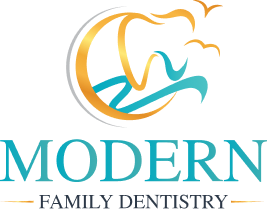

Individuals who may be suitable candidates for dentures include:
Were you aware that approximately 25% of adults aged 65 and above have lost all of their teeth? Dentures are a widely accepted and reliable option for addressing tooth loss. They are designed to appear natural and are so inconspicuous that you may have interacted with someone who wears dentures without even realizing it. Have you considered whether you might be a suitable candidate for dentures?
- Desire to replace multiple or all of your teeth
- Do not smoke or use tobacco products
- Possess a healthy jawbone (we can assist you with this)
- Do not experience chronic dry mouth
- Are willing to diligently maintain and care for your dentures at home
- Understand the importance of regular dental check-ups, similar to caring for natural teeth
To be eligible for this restorative treatment, it is ideal if you:
What are the steps for maintaining denture hygiene? Denture care involves regular cleanings and checkups with your dentist. Even individuals with flawless prosthetics require periodic dental visits. During these appointments, your dentures and their fit will be assessed, and a comprehensive examination of your gums, tongue, jaw, and overall oral health will be conducted. In summary, our focus extends beyond just your teeth – we genuinely care about your overall oral well-being.
- Remove dentures overnight: Allow your mouth to rest by taking out your dentures while you sleep.
- Soak dentures: Soak your dentures in warm water, either with or without denture cleanser. Avoid soaking dentures with metal clasps in anything other than warm water.
- Prevent drying and warping: When not wearing dentures, keep them in water to prevent them from drying out and warping. Avoid soaking them in hot water.
- Clean and massage your gums: With your dentures removed, gently clean and massage your gums. If your toothbrush causes discomfort, rinse it under warm water or consider using a finger wrapped in a clean damp cloth.
- Brush natural teeth (for partial denture wearers): If you have partial dentures, continue to brush your natural teeth as usual.
Here are some guidelines for caring for your dentures at home:
Remember, regular dental check-ups are important to ensure the proper fit and condition of your dentures.
Cost Of Dentures
The cost of full or partial dentures can range from around $900 to $3500 or more. The wide variation in cost is due to the availability of dentures tailored to different needs. Full-mouth dentures can typically range from $1,800 to $3500 and beyond. As for implant-supported dentures, a rough estimate for a full set averages around $30,000. It’s important to consult with a dentist to get an accurate cost estimate based on your specific requirements and treatment plan.
- Type of denture needed
- Dental extractions or necessary preparations
- X-rays and diagnostic tests
- Inclusion of supportive implants
Here are the factors that determine the cost of dentures in bullet points:
Please note that consulting with a dentist will provide a more accurate cost estimate based on your specific circumstances.
Contact us today
to schedule an initial consultation & exam.
Your consultation will include an examination of everything from your teeth, gums and soft tissues to the shape and condition of your bite. Generally, we want to see how your whole mouth looks and functions. Before we plan your treatment we want to know everything about the health and aesthetic of your smile, and, most importantly, what you want to achieve so we can help you get there.
Frequently Asked Questions
The lifespan of dentures can vary, but on average, they last between 5 to 10 years. With proper care and maintenance, they can last even longer.
While it may take some time to adjust to wearing dentures, they can be made to fit comfortably. Your dentist will work closely with you to ensure a proper fit and address any discomfort.
Yes, with practice and time, most individuals can eat and speak comfortably with dentures. Initially, you may experience some difficulty, but as you become accustomed to wearing them, your ability to eat and speak will improve.
Dentures should be cleaned daily using a soft-bristle brush or denture cleaner specifically designed for denture cleaning. It’s also important to soak them in water or denture solution when not in use to prevent drying out.
Yes, dentures can be adjusted or repaired by your dentist if they become loose or damaged. It’s important to schedule regular dental check-ups to ensure your dentures are in good condition and functioning properly.

.png)




